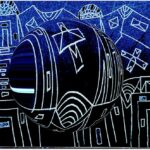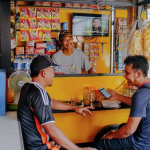
How can we engage improvisation and imagination in digital research?
By PETER SPEAR, Spear
At the beginning of the pandemic, I was pretty sure I was done. I had been a qualitative researcher and brand consultant for 25 years. I had spent the past decade building my practice around an approach that centered contextual and imaginative face-to-face research. I called it brand listening, and it combined ethnographic interviews and free association and projective techniques.
In a 2019 project for Tom Brady’s fitness brand TB12, I tagged along with people as they went to the gym, to a stretching session, even a pole dancing studio. I will never forget what Michael showed me about the burden of masculinity, when he confessed to me he would only do yoga at home, out of embarrassment. Or what Lisa showed me about belonging, when she talked about her “pole sisters.” Working for the mattress brand Leesa Sleep in 2018, I was welcomed into people’s homes and bedrooms to explore rituals and routines around sleep. The ability to connect...












